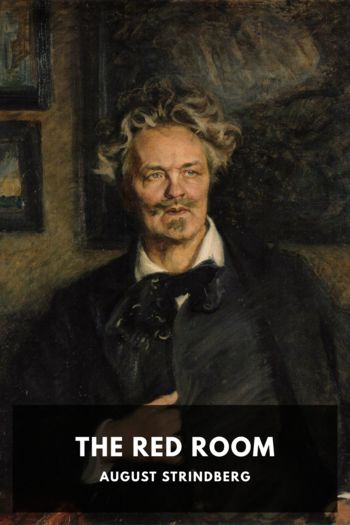The Inferno August Strindberg (story books to read txt) 📖

- Author: August Strindberg
Book online «The Inferno August Strindberg (story books to read txt) 📖». Author August Strindberg
At this time I study Buddhist books, and wonder at the self-denial with which I mortify myself for another. But good works deserve a reward, and mine did not remain wanting.
One day the Revue des Revues comes with a likeness of the American prophet and empiric doctor, Francis Schlatter, who in the year 1895 cured five thousand sick persons and then disappeared without ever being seen again. Now this man’s features resembled in a remarkable way those of my new companion. To confirm my supposition, I show the Revue to a Swedish sculptor with whom I have an appointment in the Café de Versailles. He notices the resemblance at once, and reminds me of a remarkable coincidence of circumstances. Both the doctor and my friend were Germans by birth, and worked in America. Still further, the disappearance of Schlatter coincided with the appearance of our friend in Paris. Since I am initiated a little into the use of occultist expressions, I start the hypothesis that Francis Schlatter is the “double” who leads an independent life, without being aware of it.
When I mentioned the word “double” my sculptor was startled, and drew my attention to the fact that our friend always occupied two houses, one on the right and the other on the left bank of the river. Moreover, I learn that my mysterious friend lives a double life in this sense, that, after he has spent the evening in half-philosophic, half-religious discussions with me, he is always seen late at night in Bullier’s dancing-saloon.
There is a sure means of proving the identity of these two “doubles,” as the Revue des Revues contains a facsimile letter of Francis Schlatter. “Come to dinner tonight,” I suggested. “I will dictate to him Schlatter’s letter; if the two handwritings, and especially the signatures, resemble each other, it will be a proof.”
At dinner the same evening everything is confirmed, the handwriting and signatures are identical. A little surprised, the artist submits to our examination; at last he asks: “What is your object in this?”
“Do you know Francis Schlatter?”
“I have never heard the name.”
“Don’t you remember that doctor in America last year.”
“Oh, yes! that quack!”
He remembers, and I show him the portrait and facsimile.
He laughs sceptically, and remains quite calm and indifferent. That is all.
Some days later I am sitting with my mysterious friend, with our glasses of absinthe, on the terrace of the Café de Versailles, when a fellow in workman’s clothes, with a malicious aspect, suddenly stops before the café, then rushes through the customers, and bawls at my friend in his loudest voice: “At last I have you, you sharper, who fleeced me! What is the meaning of it? First of all, you order a cross for thirty francs, and then you disappear. Son of a dog! Do you think a cross like that makes itself?”
He continued to rage. The café waiters vainly attempted to remove him; he threatened to fetch the police, while the unfortunate accused, motionless, dumb, and prostrate, like a condemned man, remained exposed to the gaze of a circle of artists who all knew him more or less. When the commotion was over, I asked him with a bewildered mind, as if I had witnessed a witches’ sabbath: “What cross worth thirty francs? I don’t understand a word of the business?”
“It was a model of Joan of Arc’s cross which I was going to use for my picture of the crucified woman.”
“He certainly was a devil, that workman.”
After a pause, I continue: “It is odd, but one does not play unpunished either with the Cross or with Joan of Arc.”
“You believe in them?”
“I don’t know!—But the thirty pieces of silver!”
“Enough! Enough!” he exclaims in a tone of vexation.
From this evening a certain coldness ensues between us. Our acquaintance had now lasted four terrible months. My companion had studied in quite a new school, and had time to strike out new paths in his art, so that he could finally throw aside “the crucified woman” as an old toy. He had learned to regard suffering as the only real joy in life, and so had attained to resignation. He was a hero in his poverty. I admired him when twice in the same day he measured on foot the distance between Montrouge and the Market Halls with boots worn down at the heel, and without food. In the evening, when he had visited the offices of seventeen illustrated papers, and sold three drawings, without however being paid for them at once, he quickly swallowed two sous’ worth of bread and hurried to the Bal Bullier.
At last, in silent agreement, we dissolved the partnership we had entered on for mutual help. We both felt that it was enough, and that our destinies must go on to separate fulfilments. When we exchanged our last farewells, I knew that they were our last. I have never seen the man again, nor heard what has become of him.
In the course of the spring, while I was feeling depressed by my own and my friend’s untoward destiny, I received a letter from the children of my first marriage, informing me that they had been very ill in hospital. When I compared the time of their illness with my mischievous attempt at magic, I was alarmed. I had frivolously played with hidden forces, and now





Comments (0)